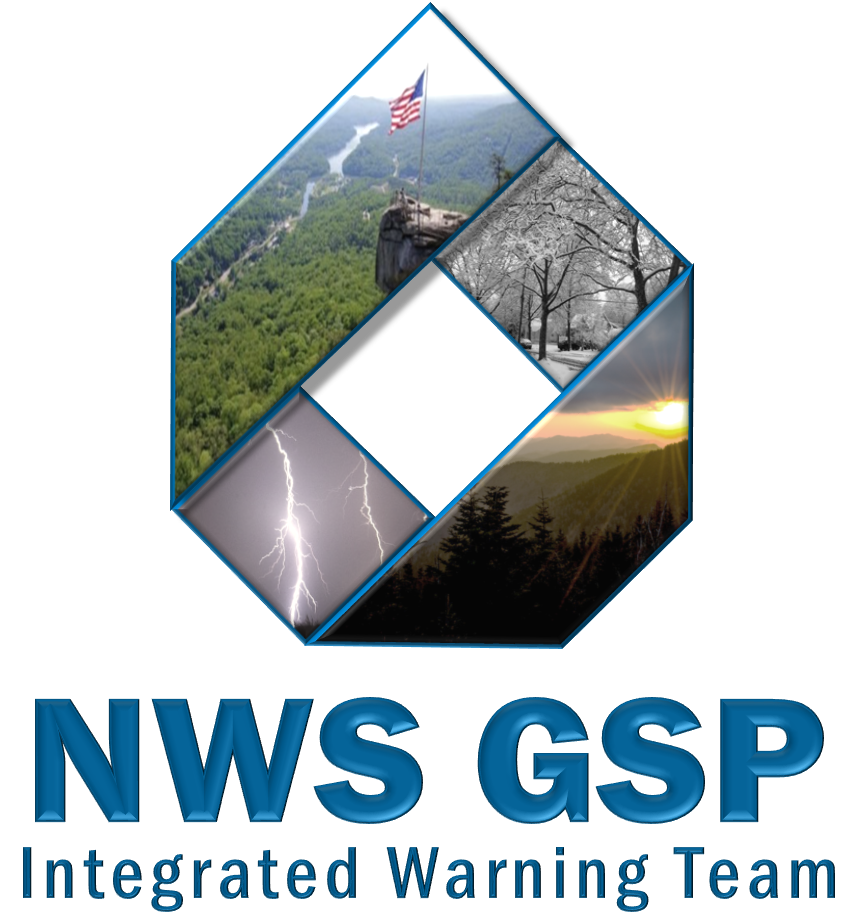
Heavy to excessive rainfall may bring flooding to parts of Arizona, New Mexico, Florida, North Carolina, and Virginia today. Recently burned areas will be particularly vulnerable to flash flooding. Gusty winds and low humidity will bring elevated to critical fire weather conditions to parts of the Northwest U.S. and central Alaska today. Read More >
 |
Partnerships in the 2019 Workshop Host: Spartanburg SC |
2019 Meeting Agenda
Some of the items on this year's agenda will be:
When is the next Integrated Warning Team (IWT) meeting?
Tuesday, March 5, 2019, Time: ~8:30 AM - ~4:00 PM
Registration: 2019 IWT Registration
If you have any questions, please contact Trisha Palmer at Trisha.Palmer@noaa.gov.
Where will the 2019 IWT Meeting be held?
Spartanburg Community College - Tyger River Campus in Spartanburg, SC
1875 E Main Street, Duncan, SC 29334
(This is NOT the campus on Business 85. Take exit 63 off of I-85 and go south just over 2mi on Hwy 290. The Sparks Center entrance will be on your left, just past the main Spartanburg Community College entrance.)
Why have an IWT?
Post-event studies of high-impact weather events have shown that coordinated actions of an IWT play an important role in achieving a favorable public response. Bringing NWS, EMs, and broadcast media together with other partners in the same room to discuss best practices and challenges not only lays the foundation for improved relationships between members of the IWT, but helps us to all understand how the public we serve responds to our services.
Presentations from Past Integrated Warning Team Meetings
What is an Integrated Warning Team (IWT)?
An IWT is an ad-hoc “team” of people/entities who are involved in the preparedness and response to high-impact weather event.
An IWT Workshop is a meeting of IWT team members to discuss best practices, challenges, and ways to improve preparedness and response, and specifically to disseminate a unified message during severe/high-impact weather events.
Who is part of an IWT?
An IWT primarily consists of the National Weather Service (NWS), Emergency Management (EM) (local, state, and federal) and broadcast media.
The IWT also includes (though is not necessarily limited to) school/university officials, first responders, transportation officials (ground and air), healthcare officials/organizations, power companies, forestry and agricultural groups, the U.S. Geological Survey, amateur radio operators, officials with large event/outdoor venues, and private companies (especially those involved with weather, safety/security, and emergency management). Again, anyone involved in the preparedness and response to high impact weather.
Decision Support Pages
|
Tweets by @NWSGSP |